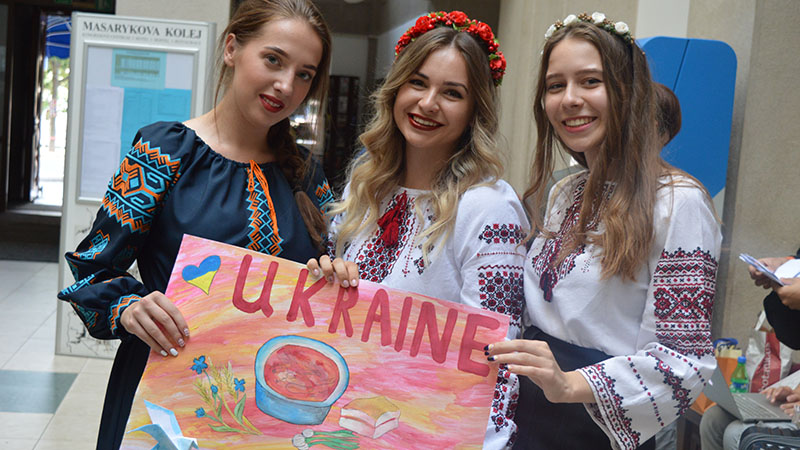
This article by Roger Ream originally appeared in the National Review. You can find the original article here.
Earlier this year, a young Ukrainian woman named Anna sent me an urgent email from a bomb shelter in Kharkiv. In the message, Anna requested that the educational organization I lead, The Fund for American Studies (TFAS), extend the deadline for her to apply to our summer program in Prague. Despite her life being endangered and her being stuck in Ukraine because of the Russian invasion, Anna wanted to go to Prague to learn more about political and economic freedom, free markets, and the rule of law. But in addition to putting her life at risk, the war had presented a logistical challenge: obtaining a required letter of recommendation from her professor.
More than six months later, the situation has changed much from those desperate early days. Thanks to a stunning counteroffensive, Ukraine has recently retaken thousands of square miles of territory previously held since the start of Russia’s invasion. We seem to be entering a new phase of the war, the eventual outcome of which could be an end to hostilities and an independent Ukraine that is a member of the European Union.
Day by day, Ukraine’s future is being written. But not only on the battlefield. Just as important is that the next generation of civilian leaders who could lead a Westernized Ukraine over the coming decades is now taking shape. After eight Ukrainian university students attended our academic programs in Prague and the U.S. this summer, I have great hope in the future of Ukraine. One of these students was Anna, who made it from that Kharkiv bomb shelter to the Czech Republic to participate in our program there. Her experience, and that of her peers, tells us much about the future of Ukraine.
All eight of these students were women. This makes sense, as Ukrainian men have been required to stay in Ukraine and fight since the start of the invasion. The students are now living throughout Europe and the U.S.; none have yet returned to Ukraine. Some are studying for law school or other advanced degrees, while others are working. Each of them is preparing to contribute to rebuilding their country after the war ends. As Anna wrote in a recent letter, “it is not possible for me to stop the war in my country, but it is possible for me to become an active citizen who is able to help in reconstructing the democratic institutions in the post-war period.”
I can’t help but see a historical parallel in these students, which shows how quickly the wheel of history can turn. On a mid-November day 33 years ago in Prague, the Velvet Revolution against the Soviet-backed Communist government of then-Czechoslovakia began. On that first day, 15,000 students and other nonviolent demonstrators rose up against undemocratic one-party rule — a crowd that would eventually swell to 500,000. Within weeks, the country’s Communist leadership resigned, and author Václav Havel was elected president — first temporarily by the country’s federal parliament, then the following year by the people in the country’s first free democratic elections since World War II. Three years later, Czechoslovakia would peacefully split into the Czech Republic and Slovakia that we know today.
Less than two generations ago, both nations were united in their suffering at the hands of a brutal regime — a totalitarian system that Vladimir Putin now seems intent on reviving. Despite the long odds, the Czechs and Slovaks yearned for freedom, winning it for themselves and future generations. Today, both countries (along with many others who were formerly behind the Iron Curtain) are vibrant members of the very EU that continues to be more or less united in halting this generation’s latest attempt at Russian expansionism. In fact, several of today’s Czech leaders — including permanent representative to the U.N. Jakub Kulhánek and deputy foreign minister Marek Havrda — attended our Prague program years ago.
This recent history makes one thing clear: The war in Ukraine and the efforts of its young people aren’t just about 2022. There is a larger battle of ideas and a geopolitical struggle still to come in the years ahead. A victory for Ukraine would lead to a stronger EU, with Ukrainians able to contribute to Europe’s common defense in the same way that the Czech Republic and Slovakia do today. A defeat could see Ukraine become more like Belarus: a willing pawn of Russia and a potential springboard for its future ambitions against other sovereign countries, such as Moldova. Anna and many other young Ukrainians understand this historic moment and are preparing to meet it. Those of us in the West should learn from their example.

